Are you feeling uncertain about how to address employment gaps in your cover letter? You're not alone! Many job seekers have faced similar situations, but with the right approach, you can turn those gaps into strengths. Let's dive into some practical tips and insights that will help you present your journey in the best light possibleâread on to discover more!
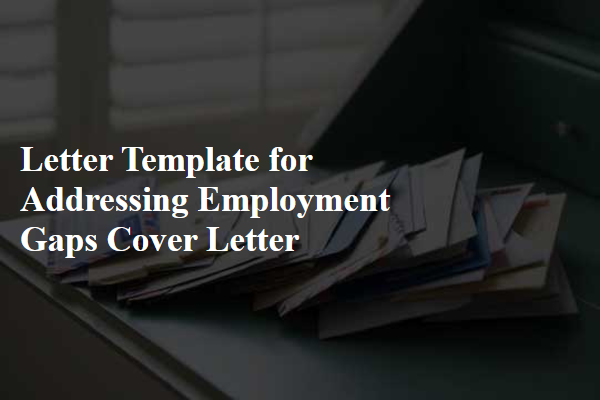
Honest explanation of the employment gap
Addressing employment gaps in a cover letter requires transparency and clarity. An employment gap, often appearing in resumes, usually indicates a period without formal work. Common causes for these gaps may include personal health issues, caregiving responsibilities, or pursuing additional education. Crafting an honest explanation helps build trust with potential employers. For example, a candidate might state that they dedicated time to care for a family member during a medical crisis, demonstrating reliability and family values. Alternatively, individuals may mention pursuing relevant skills or certifications during a gap, showcasing their commitment to professional growth. When addressing such gaps, candidates should focus on how these experiences contributed to their personal development and prepared them for future roles.
Relevant skills and experiences gained during the gap
Addressing employment gaps during job applications can be an opportunity to showcase relevant skills and experiences acquired during that time. Individuals may engage in volunteer work, pursue further education, or develop personal projects which contribute to personal growth. For example, volunteering at a nonprofit organization can enhance teamwork and leadership abilities while networking within the community. Pursuing online courses or certifications in industries like data analytics or digital marketing can equip candidates with valuable knowledge and strengthen their resumes. Personal projects, such as starting a blog or managing social media accounts for a small business, can demonstrate initiative and versatility. Highlighting these experiences not only mitigates concerns about employment gaps but also emphasizes a proactive approach toward skill development and adaptability.
Positive tone with focus on career progression
Addressing employment gaps effectively showcases determination and adaptability. Individuals often experience breaks in their career paths due to various reasons, such as pursuing education, family responsibilities, or unforeseen circumstances. Highlighting those experiences provides valuable insights into personal growth. For instance, engaging in volunteering opportunities or freelance projects during these periods demonstrates proactive behaviors. Emphasizing skills acquired during the gap, like communication or project management, can add depth to a professional narrative. Focusing on career progression reveals a commitment to personal and professional development. Transitioning into the desired role becomes a statement of resilience, adaptability, and the continuous pursuit of excellence in one's field.
Tailored to the specific job application
Addressing employment gaps effectively can enhance a job application in competitive fields. Candidates should emphasize experiences, skills, and knowledge gained during periods of unemployment. Volunteering (such as community service at local nonprofits), pursuing further education (like online courses from platforms like Coursera), or engaging in freelance work (offering services via Upwork) can demonstrate proactivity. Highlighting soft skills like adaptability and resilience gained during challenging times is crucial. Additionally, relating these experiences directly to the job requirements listed in the job description for roles at prestigious companies like Google or Amazon can strengthen the overall narrative, showcasing a continuous commitment to professional growth despite setbacks.
Emphasis on eagerness to return to the workforce
A well-crafted cover letter addressing employment gaps can effectively showcase eagerness to return to the workforce. Highlighting relevant skills, personal growth during the gap, and a strong commitment to re-entering the job market is crucial. Emphasize experience gained through volunteering, courses, or self-development activities during the hiatus. Mention specific industries of interest and how previous experiences align with roles being pursued. Acknowledge the reasons for the gap while placing focus on future aspirations and contributions to potential employers. Conclude with a statement expressing enthusiasm for opportunities to discuss qualifications and readiness to contribute to the team's success.
Letter Template For Addressing Employment Gaps Cover Letter Samples
Letter template of addressing employment gaps for a parent re-entering the workforce.
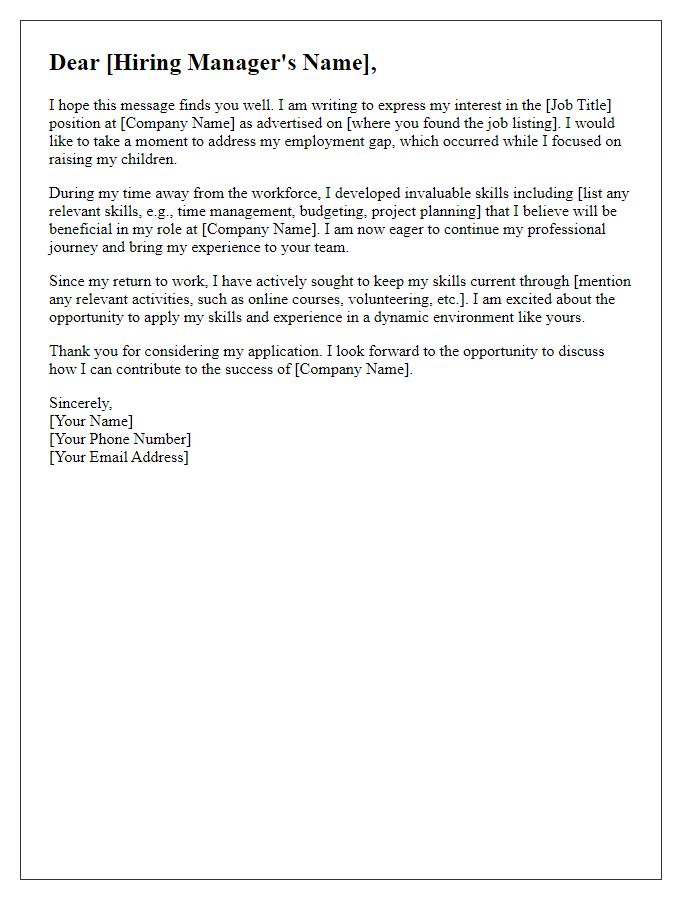
Letter template of addressing employment gaps for a professional returning from sabbatical.
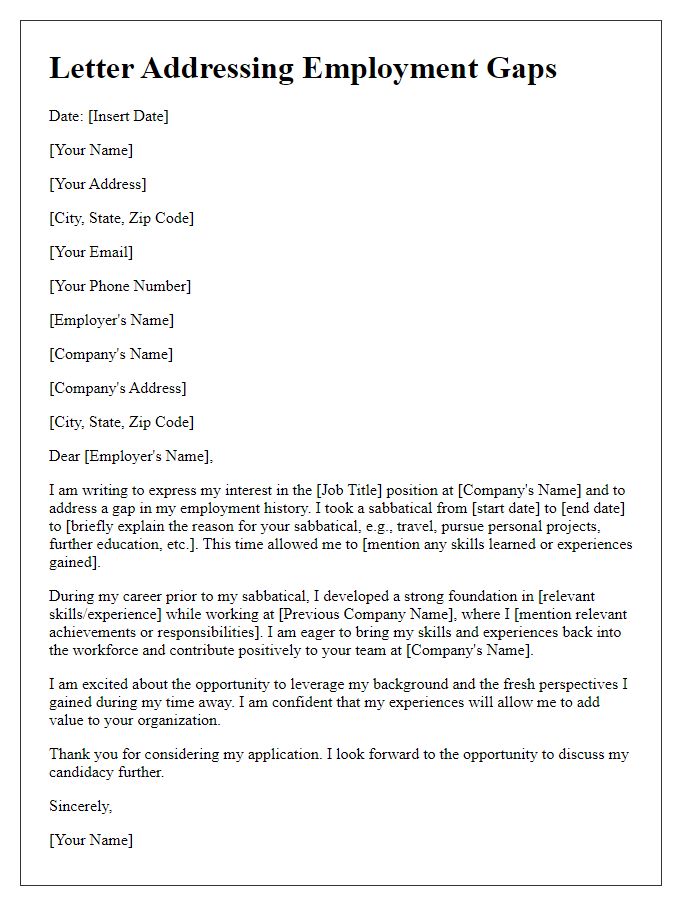
Letter template of addressing employment gaps for a freelancer seeking full-time employment.
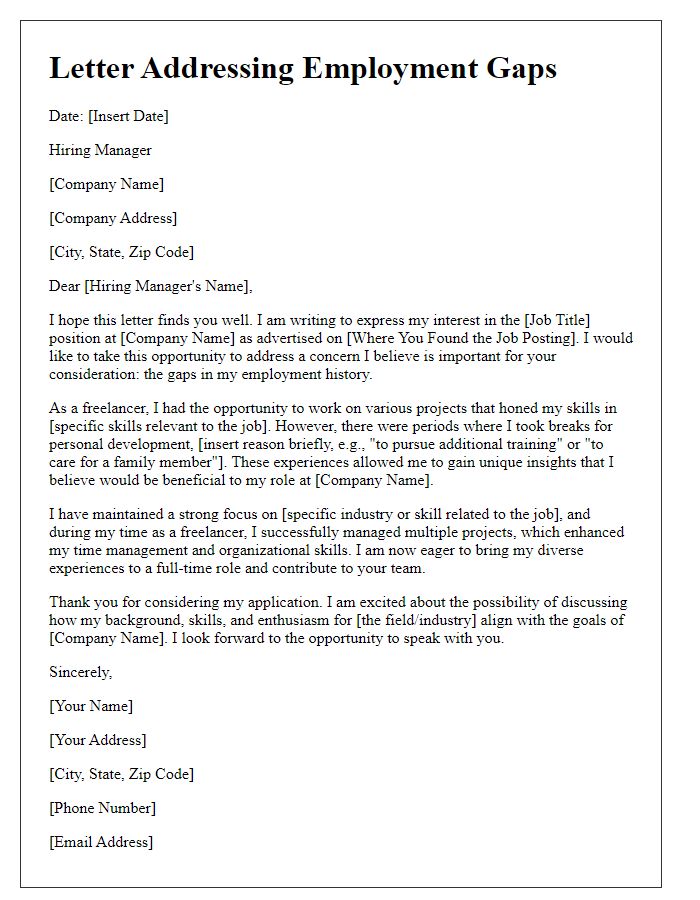
Letter template of addressing employment gaps for someone pursuing further education.
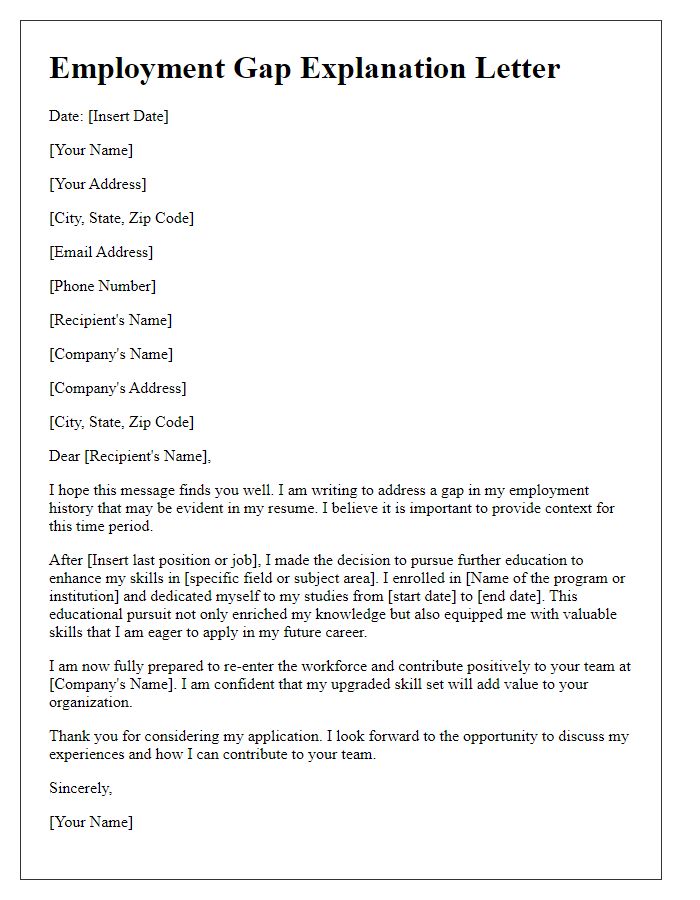
Letter template of addressing employment gaps for a military veteran transitioning to civilian work.
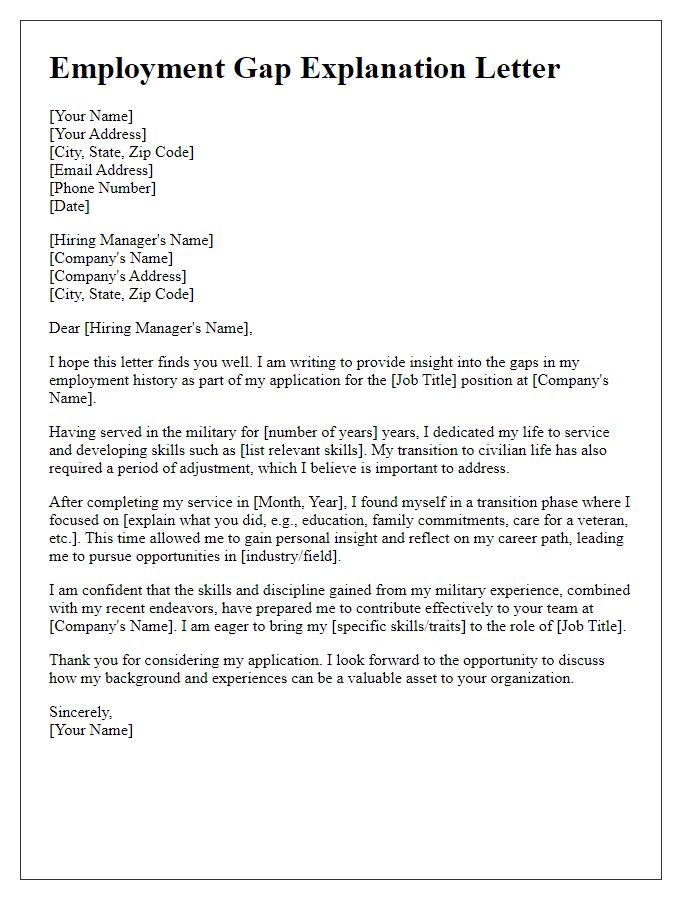
Letter template of addressing employment gaps for an individual with a long-term illness.
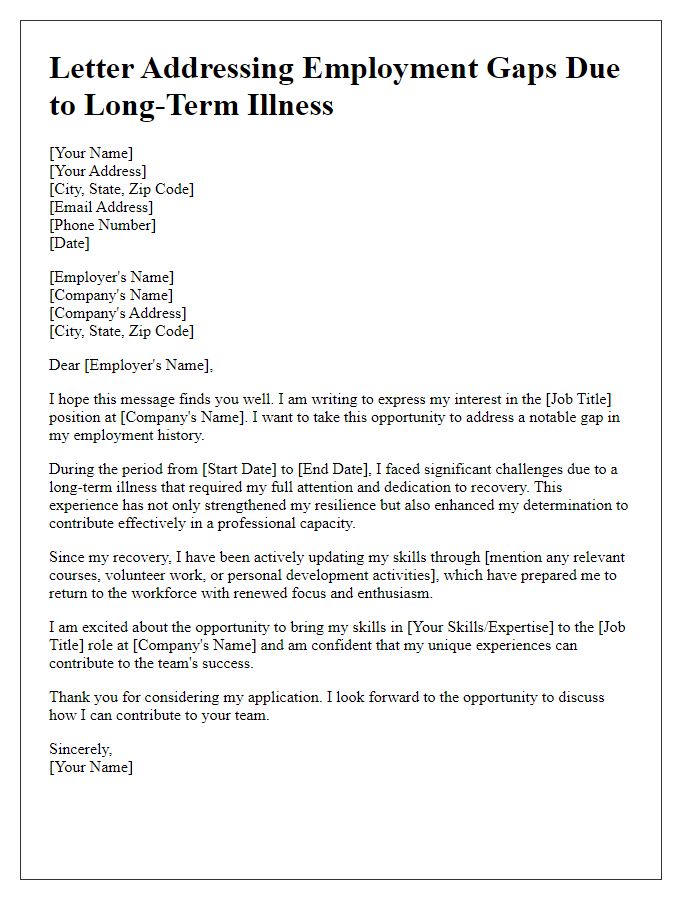

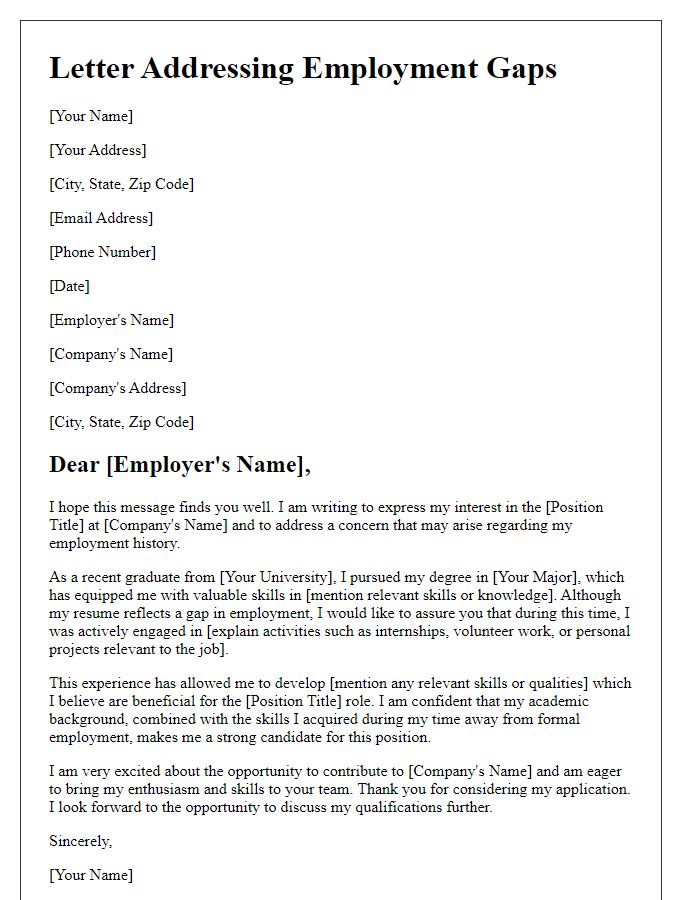
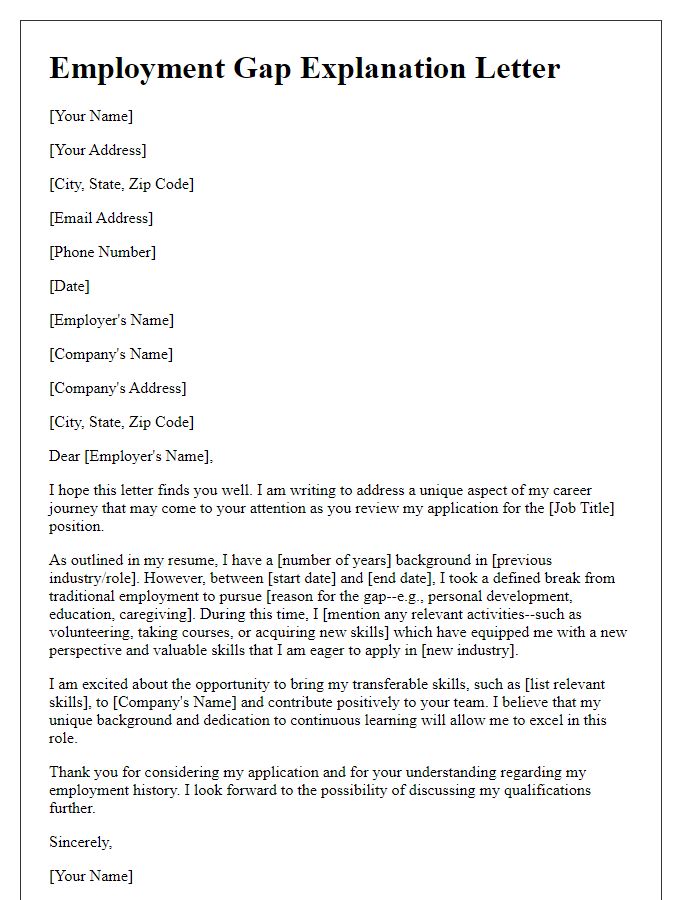
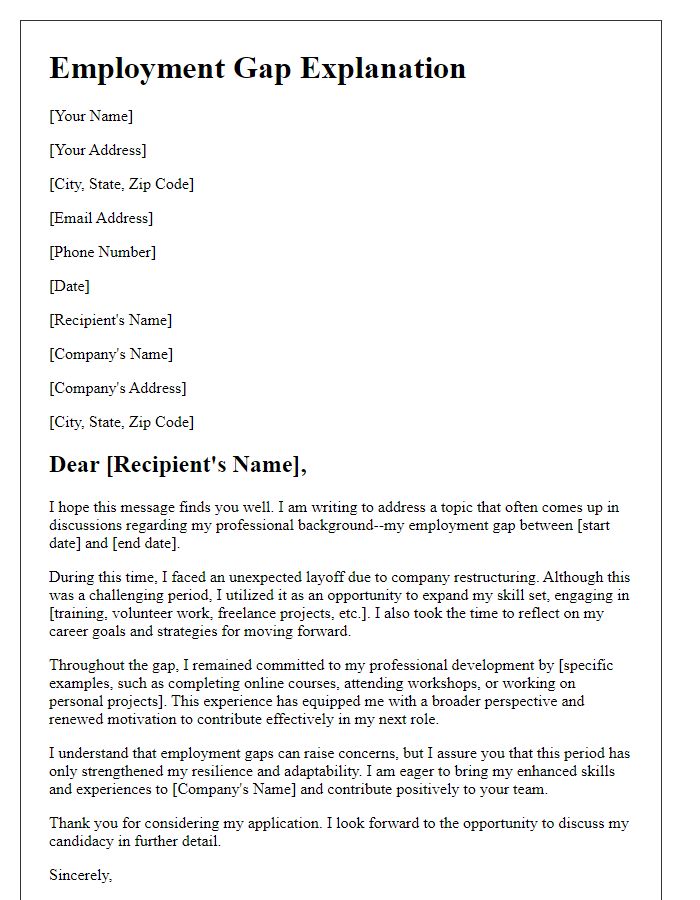
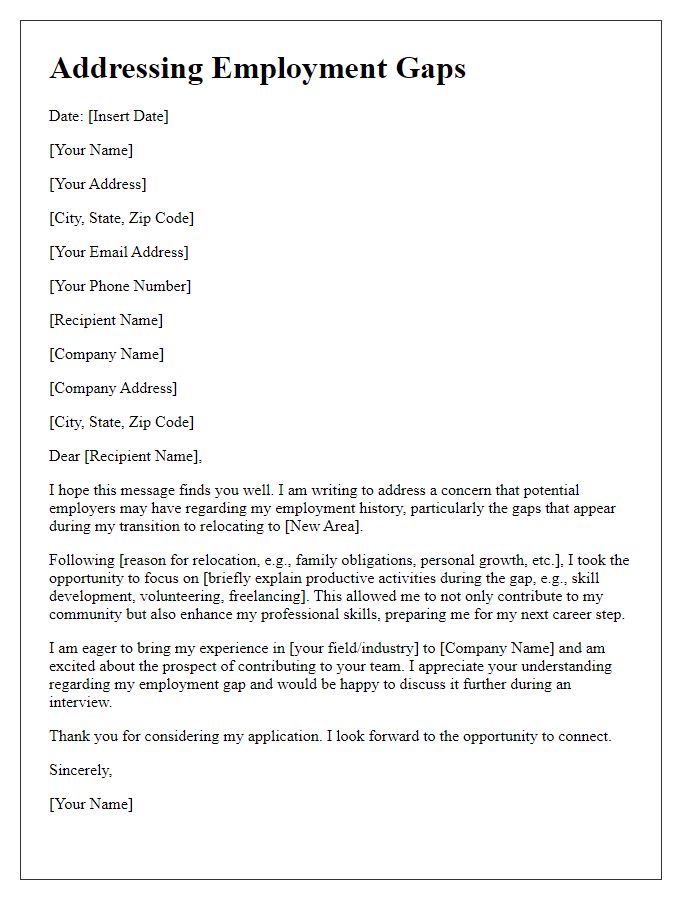

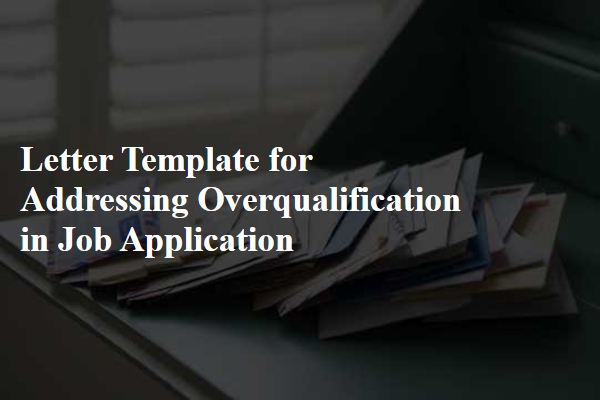
Comments